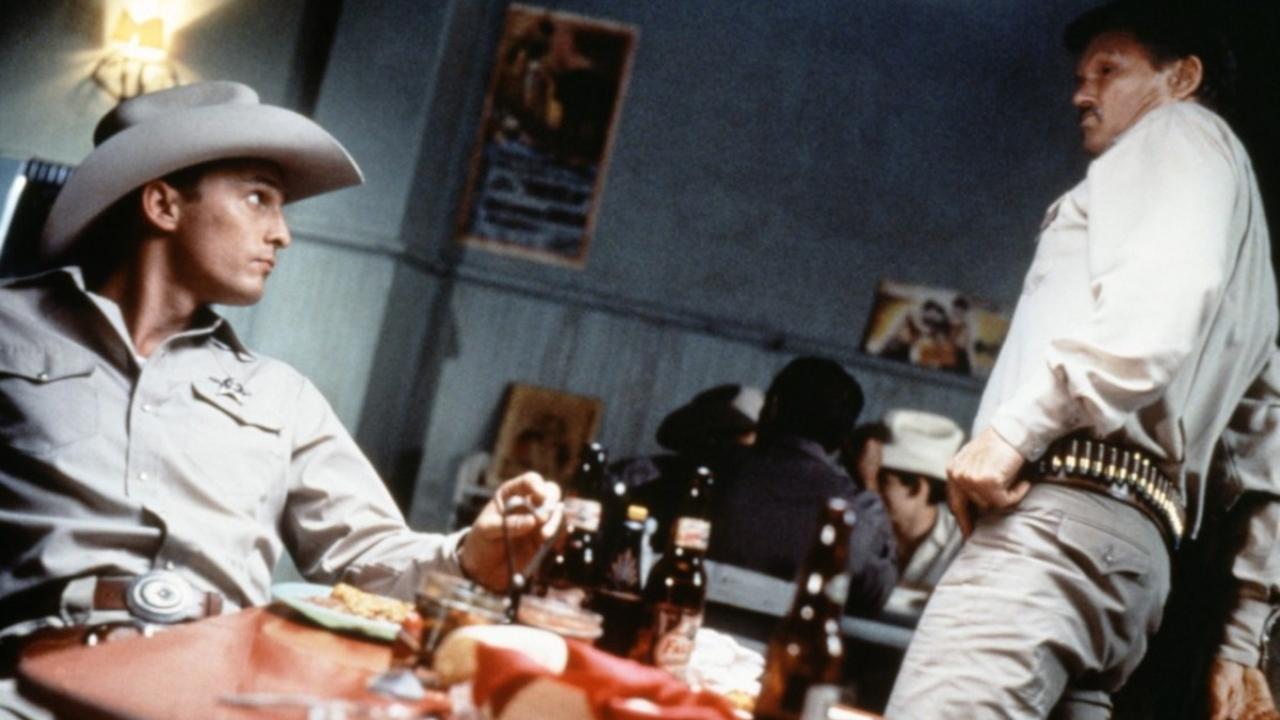 The Bigger Picture is a programming strand they have in the Irish Film Institute, in which they invite someone (usually someone involved in the film industry, broadly defined) to select a film to show and then to introduce a screening of it. Local filmmaker Luke McManus had his turn on the Bigger Picture wheel back in September. He picked Lone Star, John Sayles's 1996 film, in which Chris Cooper plays Sam Deeds, the sheriff of a border county in 1990s Texas. I had not seen it since its original release. but I eagerly took the opportunity to see it again in the cinema, as I remembered it very fondly and regard it as one of the very best films I have ever seen. And it is as good as I remembered.
The Bigger Picture is a programming strand they have in the Irish Film Institute, in which they invite someone (usually someone involved in the film industry, broadly defined) to select a film to show and then to introduce a screening of it. Local filmmaker Luke McManus had his turn on the Bigger Picture wheel back in September. He picked Lone Star, John Sayles's 1996 film, in which Chris Cooper plays Sam Deeds, the sheriff of a border county in 1990s Texas. I had not seen it since its original release. but I eagerly took the opportunity to see it again in the cinema, as I remembered it very fondly and regard it as one of the very best films I have ever seen. And it is as good as I remembered.
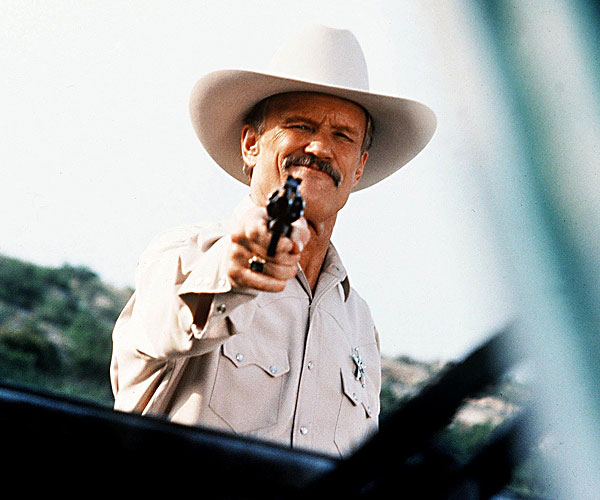 The basic plot is a murder mystery (Sam's search for the killer of Charlie Wade, the psychopathic old sheriff who disappeared in the late 1950s but whose skeletal remains show up at the start of the film) but it manages to bring in all kinds of other themes, including forbidden love, race and immigration, how historical events are recorded, difficult family dynamics, and even the nature of evil. There's also a gothic tinge to this tale of dark secrets emerging from the past, for all that this is a film set in sunny Texas rather than darkest Transylvania.
The basic plot is a murder mystery (Sam's search for the killer of Charlie Wade, the psychopathic old sheriff who disappeared in the late 1950s but whose skeletal remains show up at the start of the film) but it manages to bring in all kinds of other themes, including forbidden love, race and immigration, how historical events are recorded, difficult family dynamics, and even the nature of evil. There's also a gothic tinge to this tale of dark secrets emerging from the past, for all that this is a film set in sunny Texas rather than darkest Transylvania.
Having subsequently seen a few of Sayles's films, including 2008's Honeydripper, I think that his thing is eliciting strong performances from ensemble 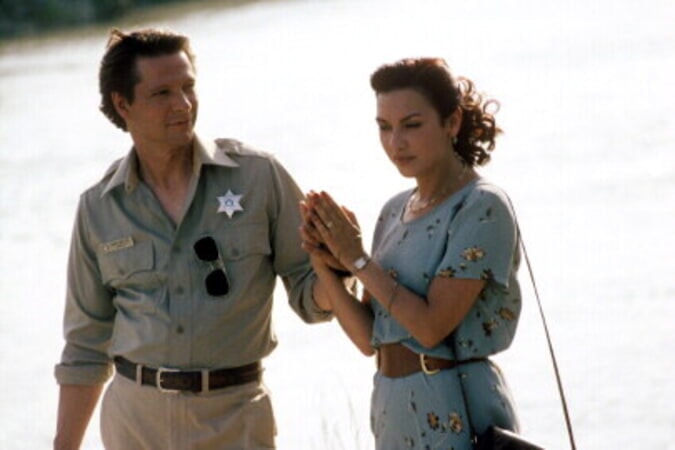 casts, with this film being no exception to that. There are so many good performances in Lone Star that it feels like I am letting the side down by singling individuals out, but Chris Cooper's understated sheriff, Elizabeth Peña as Pilar, his old flame who was kept away from him by cruel circumstances and disapproving adults, and Kris Kristofferson (in terrifying form in flashback scenes as Wade) are particularly striking.
casts, with this film being no exception to that. There are so many good performances in Lone Star that it feels like I am letting the side down by singling individuals out, but Chris Cooper's understated sheriff, Elizabeth Peña as Pilar, his old flame who was kept away from him by cruel circumstances and disapproving adults, and Kris Kristofferson (in terrifying form in flashback scenes as Wade) are particularly striking.
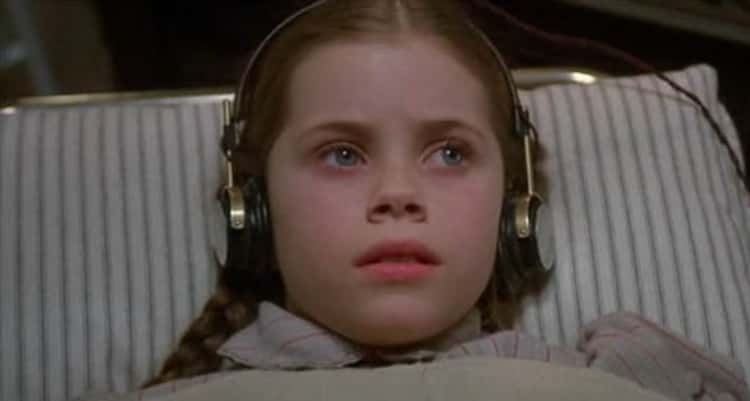
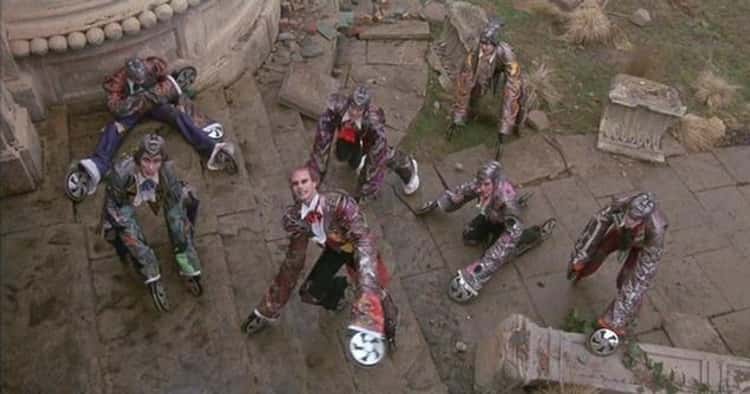
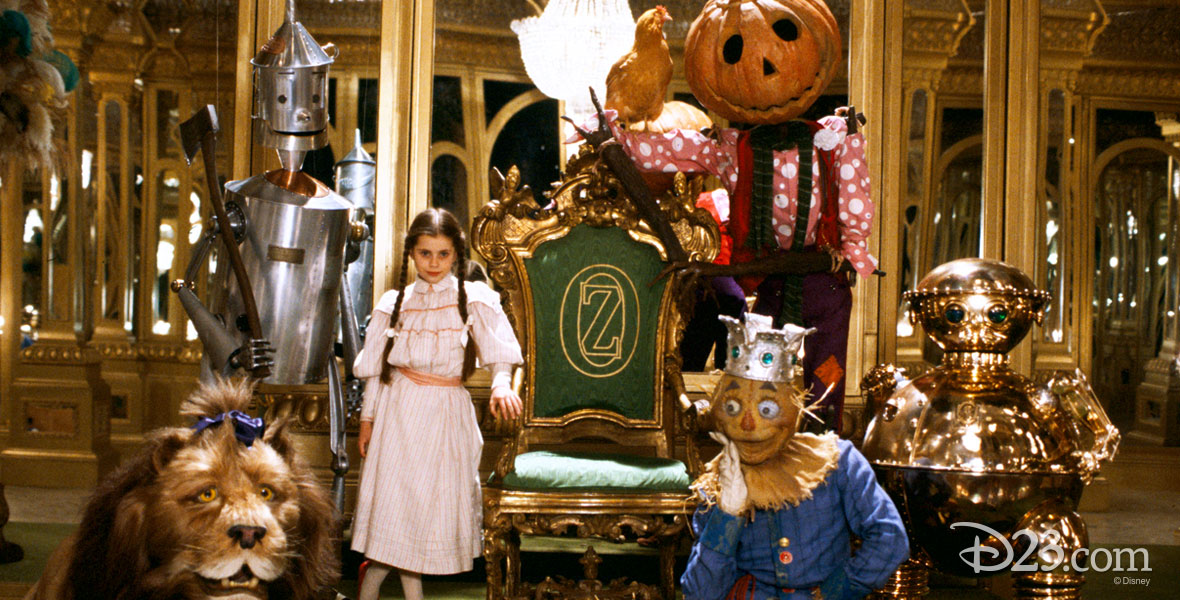 And it is pretty good, maybe even very good. I think Return to Oz suffers from not being as iconic as the 1939 film, but that's like saying it impresses less because it was less successful. It feels a bit like it is cut from the same cloth as Dark Crystal - a fantasy film for kids who can take something a bit on the scary side, with enough going on that it might actually have a stronger appeal to adults of a more discerning nature.
And it is pretty good, maybe even very good. I think Return to Oz suffers from not being as iconic as the 1939 film, but that's like saying it impresses less because it was less successful. It feels a bit like it is cut from the same cloth as Dark Crystal - a fantasy film for kids who can take something a bit on the scary side, with enough going on that it might actually have a stronger appeal to adults of a more discerning nature.
I am now thinking of what film I will pick when my turn arrives to choose one for the Bigger Picture.
images:
Matthew McConaughey & Kris Kristofferson in Lone Star (IFC Center: "Lone Star")
Kris Kristofferson in Lone Star (Austin Chronicle: "Lone Star")
Chris Cooper and Elizabeth Peña in Lone Star (Warner Bros: "Lone Star")
Dorothy in the asylum (Ranker: "The Eeriest Thing About Return to Oz")
Beware the Wheelers (Ranker: "The Eeriest Thing About Return to Oz")
Fairuza Balk as Dorothy, and friends, in Return to Oz (D23: "Return to Oz (film)")